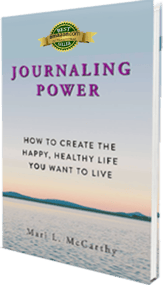By Lyn Alderson
 How’s your emotional life? Is it rich and varied? Do you laugh and cry freely in the appropriate circumstances- or are you a stiff-upper-lip type of person? While emotional control is necessary for adults, emotional freedom – the ability to feel a full range of appropriate feelings- is important to our wellbeing.
How’s your emotional life? Is it rich and varied? Do you laugh and cry freely in the appropriate circumstances- or are you a stiff-upper-lip type of person? While emotional control is necessary for adults, emotional freedom – the ability to feel a full range of appropriate feelings- is important to our wellbeing.
Yet many of us were not encouraged to express our emotions as children, and find it hard to achieve a healthy balance in our emotional life as adults.
Most moms and dads notice when their child is hungry or sick, and feed them and care for them appropriately. They also notice how a child behaves outwardly, correcting bad behaviour and dealing with obvious distress. But not all parents are sensitive to the nuances of their children’s emotional life (often because they were emotionally neglected themselves and never learned the language of emotional expression).
A child perceives this failure to respond sensitively as parental rejection. He receives the message: “Your feelings don’t matter. YOU don’t matter”.
In this way, many of us grow up believing that we’re not very important, and that we don’t have a right to feel angry or to assert ourselves and our preferences. We may feel guilty and uncomfortable whenever we have strong emotions, and quickly supress them.
This habitual repression is a learned pattern of behaviour. And the good news is that just as we learned to deny our feelings, we can also learn to express them.
I think we can do this best through journaling. Writing therapy has a way of drawing our emotions out in their richness and in full color.
Sometimes this means revisiting past experiences to unlock the pain of the past, forgive and move on. There’s plenty of scientific evidence that journaling about our emotional traumas has a positive effect on health and boosts the immune system. In the long run, expressing emotional distress in a private journal is profoundly healing, and much healthier than ignoring it.
As Dr James Pennebaker, a journaling pioneer has stated, writing about emotional traumas can make you feel unhappy for a few hours, but in the long run, it’s proven to have beneficial effects.
That doesn’t mean that we always write about grief and loss. Our journals should also be filled with light. We need to use as much energy expressing positive feelings as negative ones, and then we can find emotional balance.
I write a lot of positive stuff in a beautifully embroidered, permanent journal. It’s full of my spiritual and emotional insights. It includes all the good things that happen to me as well as prayers of blessing for friends and family. I love reading back over these journals, and they help me chart my personal and spiritual growth. I like reading them late at night, and focusing on a peaceful meditation to end the day.
How do you enter the sacred space?
Please share your answers in the Comments section.
About
 Lyn Alderson is a professional journalist, blogger and author, based in the English Midlands.
Lyn Alderson is a professional journalist, blogger and author, based in the English Midlands.
She has 25 years’ experience of writing news and features for UK newspapers and magazines.To find out more about Lyn and her work visit http://lacopywriting.co.uk
If you want to find out more about the health benefits of keeping a journal, check out Lyn's e-book The Write Therapy: How Keeping a Journal Can Make You Happier, Healthier and More Productive available from the Amazon Kindle Store.


Leave Comment